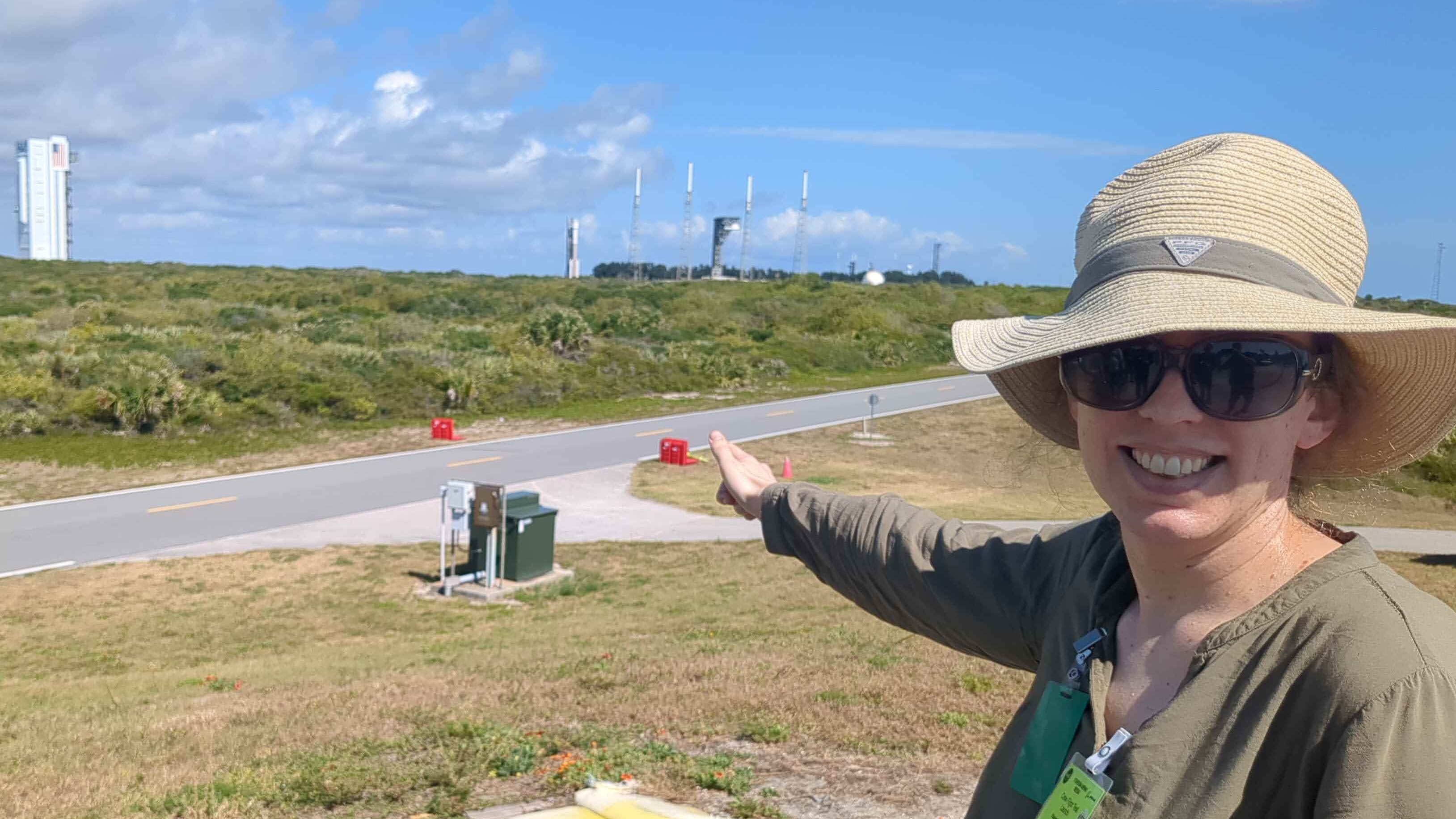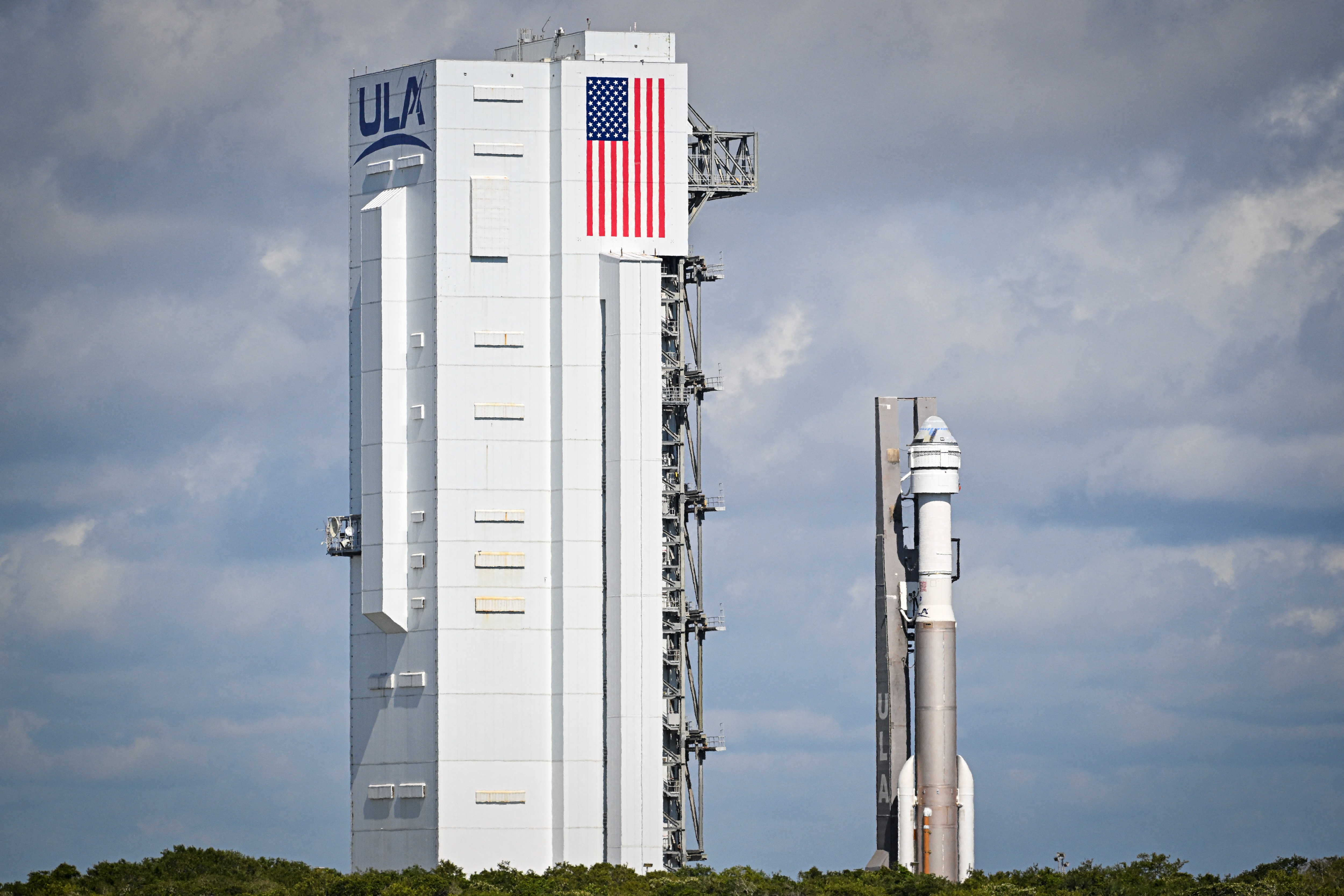CAPE CANAVERAL, FLORIDA — May the rocket’s Force be with you!
An Atlas V rocket rolled out to its launch pad on Saturday (May 4), also Star Wars Day, at Cape Canaveral Space Force Station days before its historic first mission with astronauts. Atop the United Launch Alliance booster was Boeing’s Starliner spacecraft, which will also make its debut flight with humans onboard after launching no earlier than Monday (May 6).
The instantaneous launch window opens at 10:34 p.m. EDT (0234 GMT on Tuesday, May 7) and you can watch the historic International Space Station (ISS) mission live here at Space.com, courtesy of NASA Television.
The mission, called Crew Flight Test (CFT), will send two veteran NASA astronauts and former U.S. Navy test pilots aloft: Butch Wilmore will command the mission and Suni Williams will be the pilot. The duo are quarantining at the nearby Kennedy Space Center.
I joined a group of about 35 reporters on a small hill about a mile away from Space Launch Complex 41 for my first-ever Floridian rocket rollout in which the booster was always going the right way towards the pad.
Back in August 2006, I made an attempt to see mission STS-115 fly to the ISS. Then life happened. During my flight from Canada to the Space Coast, space shuttle Atlantis’s launch pad was hit by lightning. As NASA took time to double-check all systems, Tropical Storm Ernesto made its way up the coast.
So instead of a launch, I witnessed Atlantis being pulled back towards shelter — and then pause in its path to the Vehicle Assembly Building, and get pulled back to the launch pad when the tropical storm shifted far enough away to make that the safe choice. I definitely missed that launch, but no regrets, as that situation was a pretty unique one.

Starliner’s presence here two decades later is also unique, as the first spacecraft to bring astronauts to space from the Cape Canaveral side since Apollo 7 on Oct. 11, 1968.
And no human has ridden any Atlas rocket since Gordon Cooper’s Mercury-Atlas 9 mission on May 15, 1963 (almost exactly 61 years before Starliner’s CFT launch attempt.)
If CFT goes to plan, Boeing will soon join SpaceX in sending astronauts for six months at a time to the ISS. That’s after both companies received commercial crew contracts from NASA in 2014, valuing Boeing’s at $4.2 billion back then, compared to SpaceX’s $2.6 billion.

While SpaceX has sent 12 crewed missions to ISS since 2020, including an astronaut test flight, Starliner’s waited four extra years. Boeing’s first ISS flight in December 2019 was dogged with so many computer glitches that Starliner never made it to its assigned orbit. After the COVID-19 pandemic erupted, and dozens of fixes were implemented, and Starliner at last made a successful second uncrewed test flight in May 2022.
CFT was also expected to launch earlier, most recently 2023. Critical issues found last year delayed that, however, as Boeing officials sought to address issues with the loads on the capsule’s main parachutes, as well as wiring covered in flammable tape.
NASA and Boeing have carefully gone over all details ahead of this flight and maintained at a press conference Friday (May 3) that all is ready to go safety-wise. Weather is also 95% go for Monday’s launch attempt on the Space Coast; that said, checks for proper technical fit and good weather will continue up to the moment of liftoff.
Related: 1st Boeing Starliner astronauts are ready to launch to the ISS for NASA (exclusive)
The spacecraft’s first operational mission will be Starliner-1, no earlier than 2025, and it will send at least three astronauts to the ISS: NASA’s Mike Fincke (who is also serving as a CFT backup astronaut), alongside NASA’s Scott Tingle and the Canadian Space Agency‘s Joshua Kutryk (the capcom for CFT’s ascent phase.)
NASA plans to alternate SpaceX’s Dragon and Boeing’s Starliner in sending up astronauts at least every six months from U.S. soil. Russia’s Soyuz spacecraft will also continue to send some agency astronauts aloft, for technical and policy reasons.
While NASA aims to have these commercial crew vehicles working past the lifetime of ISS, the orbiting complex is expected to finish operations in 2030. Russia may pull out as soon as 2028, although all timelines are subject to flux as the countries work on implementing next-generation space programs.



